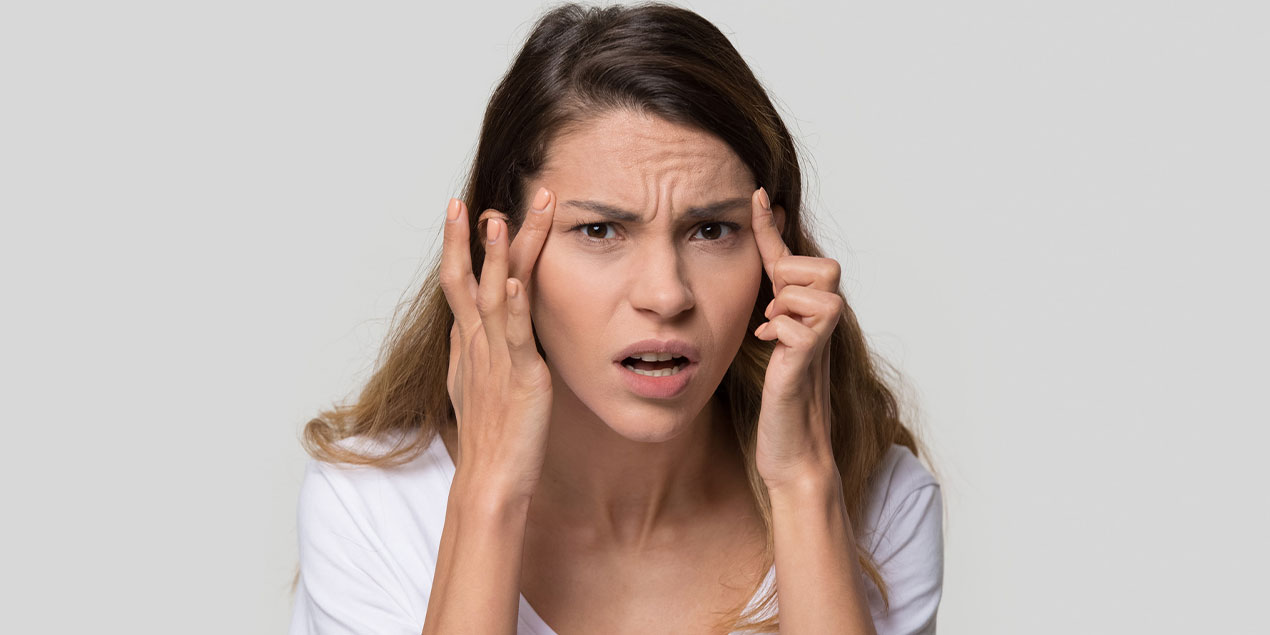Has “that unbearable pain” that throbs on one side of your head, sometimes creating unbearable sensitivity to light or sound, taken over your life comfort? If you’re struggling with migraine attacks that disrupt your daily work, anger episodes resistant to painkillers, and tense mood, Migraine Botox (Botulinum Toxin A Application) is perfect for you! At our clinic in Istanbul, our migraine botox treatment offered through the collaboration of neurology and aesthetic specialists significantly reduces weekly attack frequency, severity, and accompanying neurological symptoms.
What is Migraine Botox?
Migraine botox is a preventive treatment method approved by the United States Food and Drug Administration (FDA). It aims to reduce migraine attack frequency with muscle-relaxing injections of Botulinum Toxin A into specific head and neck muscles.
- Goal: To reduce attack number and duration by half in chronic migraine patients experiencing 4 or more migraine attacks per month
- Application Areas: Forehead, temples, nape, neck base, and upper shoulder muscle groups
- Duration: Average 15-20 minutes; comfortable procedure with local anesthetic cream
- Effect Duration: First effect begins within 10-14 days, continues for 3-4 months
Why Choose Migraine Botox?
- Preventive Effect: Reduces migraine frequency by preventing muscle spasms that trigger attacks.
- Chemical Protection: Muscle-based targeted treatment instead of continuous medication use.
- Quick Procedure and Return to Social Life: Immediate return to daily routine after 20-minute application.
- Long-Term Relief: 3-4 month effect; long-term control with 3-4 sessions per year.
- Minimum Side Effects: Low risk of serious side effects in adults except mild bruising or temporary muscle weakness at injection sites.
- Personalized Planning: Total dose and number of points to be injected are adjusted according to attack severity, local findings, and lifestyle.
Who Are Candidates for Migraine Botox?
- Chronic migraine patients with ≥15 headaches per month and ≥8 of these defined as migraine attacks
- Those experiencing migraine attacks that are resistant to medications or have severe side effect symptoms
- Individuals with migraine history triggered by head and neck muscle tension
- Healthy adults aged 18-65 outside pregnancy period
Note: Those with pregnancy, breastfeeding, neuromuscular disease, or known allergy history to botulinum toxin must consult a doctor before treatment.
Pre-Treatment Preparation Process
Free Neurology Consultation
Migraine attack diary, triggering factors, and medical history evaluation.
Injection Planning
Personalization of how many units of botox are needed for which head/neck muscle groups.
Information & Consent
Transparent information about possible side effects, recovery process, and follow-up sessions.
Appointment Confirmation and Preparation
24-hour intensive exercise and alcohol restriction; keeping injection area clean.
How is Migraine Botox Performed?
1. Local Anesthetic Cream
Left on for 15 minutes to increase comfort at injection points.
2. Botulinum Toxin A Injection
Between 31-39 pre-planned points, total dose between 155-195 units:
- Forehead Area: 20-30 units
- Temples & Eye Area: 10-20 units
- Nape & Neck Base: 70-100 units
- Upper Shoulder & Trapezius: 40-60 units
3. Final Check
Homogeneous distribution of medication is ensured with gentle massage; post-injection mild bruising check.
4. Duration
Total procedure time 15-20 minutes; then you can apply light pressure and return to social life.
The Importance of Doctor Selection
Migraine botox requires both neurological and aesthetic sensitivity. The ideal specialist:
- Neurology Specialist or Certified Migraine Treatment Doctor: Experienced in migraine pathophysiology and botulinum toxin applications
- Aesthetic Injection Competency: Point selection knowing your muscle anatomy, universal standard application
- Empathetic Communication: Approach that understands your migraine attacks, listens to triggering factors, and provides realistic expectation guidance
- Hygiene and Clinical Standards: Single-use syringe/cannula, sterile environment, comfortable waiting and injection rooms
Treatment Day: What to Expect?
Welcome & Goal Reminder
We confirm the treatment plan one last time with the question “Which area bothers you most?”
Local Anesthetic Cream Application
Comfort is provided by waiting 15 minutes.
Injection Process
Average 15-20 minute comfortable experience accompanied by music.
Final Check and Photography
Gentle massage, bruising check, and morale boost with “you feel the difference even from the first day.”
Immediate Return to Social Life
No restrictions except light pressure; avoid intensive exercise for 24 hours, don’t lie face down.
Recovery Process and Follow-up
- First 24-48 Hours: Mild bruising or tenderness may occur at injection sites; you can apply ice.
- 10-14 Days: Muscle relaxation begins, frequency and severity of your headaches decrease.
- 3-4 Months: Maximum preventive effect; then long-term control with recurring sessions.
- Follow-up: We recommend free check-up within 2 weeks, 3-monthly re-evaluation.
Frequently Asked Questions
1. Does the procedure hurt?
With local anesthetic cream and fine needles, most patients return saying “I didn’t feel discomfort.”
2. How long does bruising last?
Mild bruising disappears within 3-5 days; you can hide it with makeup or a thin hat.
3. When does the first effect start?
Within 10-14 days, the frequency and severity of your headaches show significant reduction.
4. Can I reverse the botox?
If you don’t want the migraine preventive effect, muscle function returns automatically after the 3-4 month effect.
5. When can I return to work/school?
Return to your daily routine is possible within the same day; avoid intensive effort for 24 hours.

